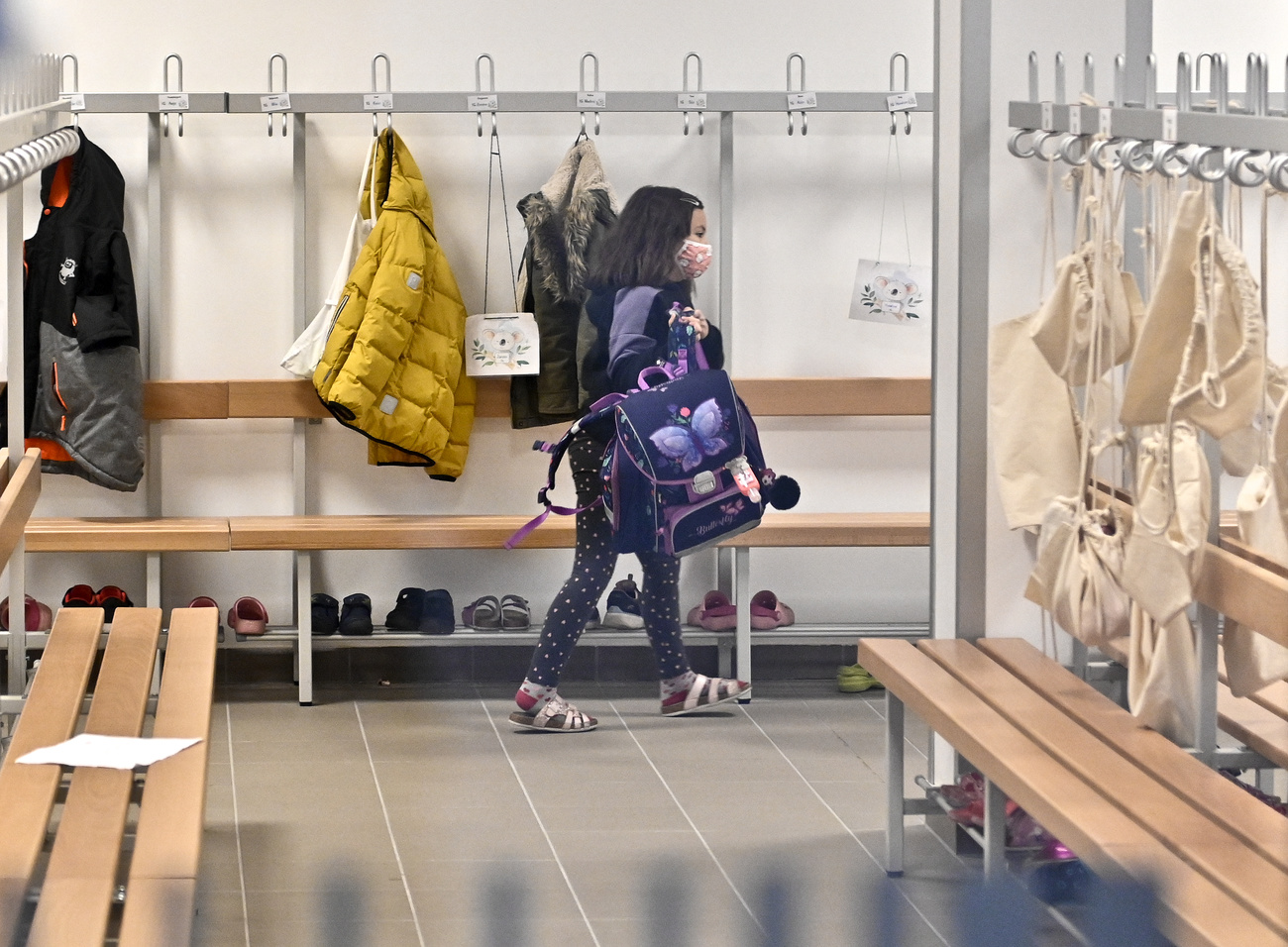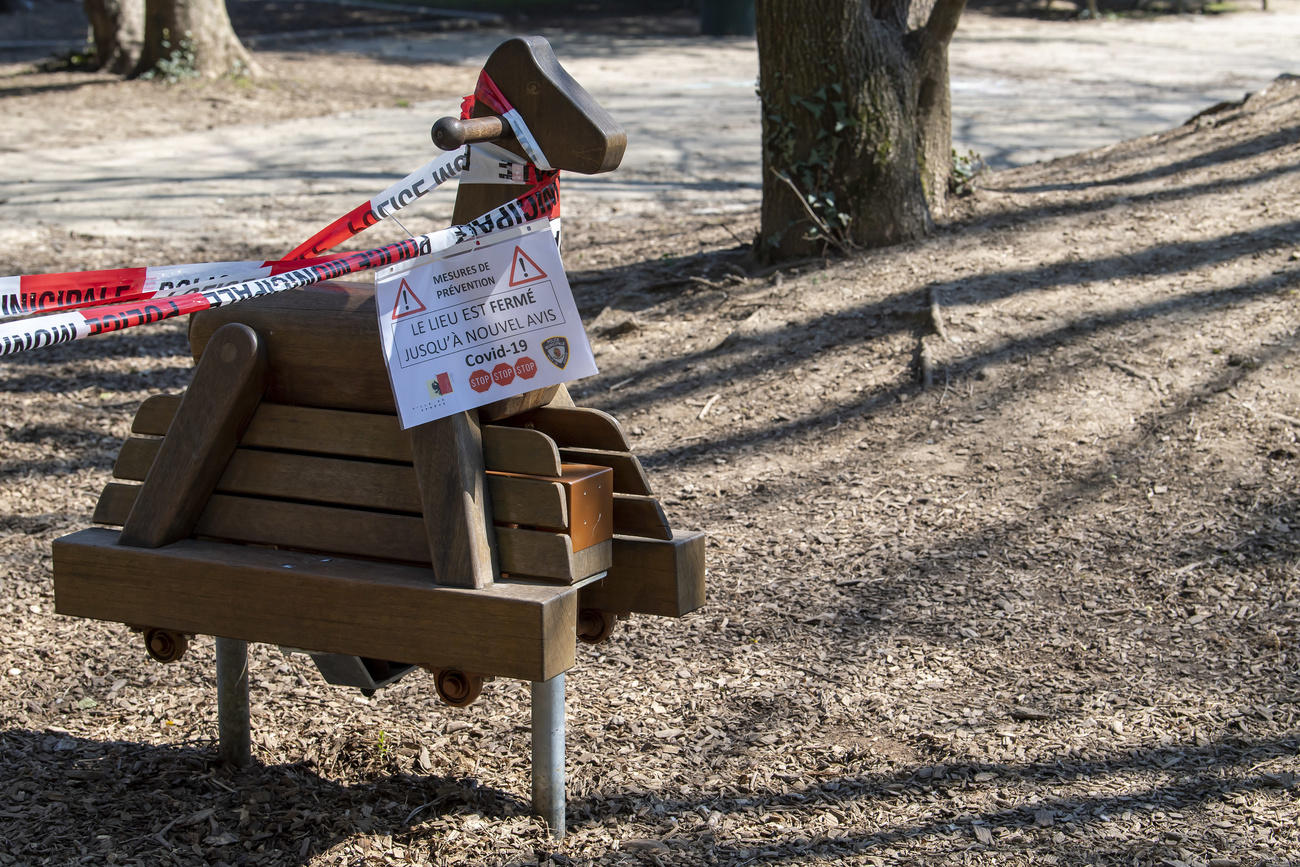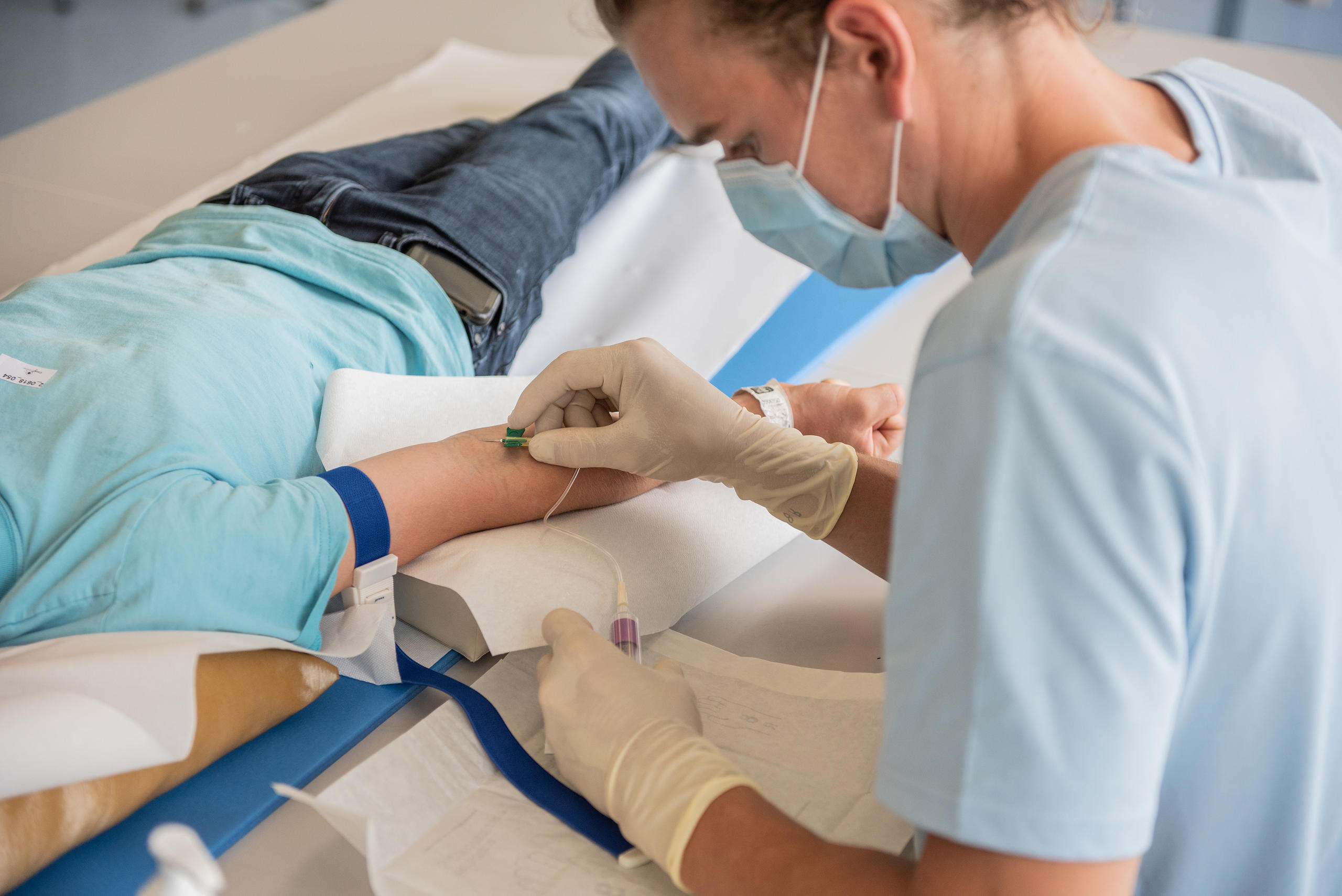
Swiss schools stay open as debate over virus spread continues

Austria has closed all schools to curb rapidly rising coronavirus cases, but neighbouring Switzerland has no plans to follow suit. Swiss authorities have based this decision in part on the belief that children are not drivers of the pandemic, although research on this is divided.
Austrian Chancellor Sebastian Kurz has ordered all schools to move to distance learning from this past Tuesday, as part of a new national lockdown that will last at least two and a half weeks. Nurseries and primary schools will remain open only to those requiring childcare.
In Switzerland schools remain open, after closing during the first wave in spring. As reported coronavirus cases surge in the country, reaching more than 10,000 new cases per day at some point in early November, more questions are being raised about the choice to stay open.
“Switzerland wants to avoid a second school closure by sending affected students or classes into quarantine,” Beat A Schwendimann, board member of the Federation of Swiss TeachersExternal link, told SWI swissinfo.ch, adding that it was important that those affected received the digital equipment and learning material they needed for distance learning.
Swiss officials have held throughout the pandemic that it is better for children’s education if they can attend school in person.
“The decision whether to close schools again lies with the cantonal department of education or the Federal Council,” Schwendimann said.
In Switzerland education is a cantonal matter (so cantons would normally decide on school closures), and the Federal Council (Swiss government) stepping in to close schools nationwide in spring was unprecedented.
The federal government did tighten measures in Swiss schools in late October, including masks for teachers and pupils over 12. Any further restrictions have been left to individual cantons.
What role do children play?
A key question driving decisions over school closures is to what extent children spread the virus. Swiss officials have long communicated that they do not consider children the primary drivers.

More
True or False: Children are not the drivers of the coronavirus pandemic
Researchers have also been looking into the issue. Susi Kriemler, the leader of the ongoing Ciao Corona study in canton Zurich looking at schoolchildren’s role in the pandemic, recently told Swiss public television SRFExternal link that the results thus far show that younger children have not generally been the problem, despite very occasionally infecting peers or a parent.
“At the moment it looks like teenagers are more affected. Their behaviour and potentially also their immunity are different,” the University of Zurich professor said.
The interim results of the antibody study, published in September, help justify schools staying open for now, she said. Those results showed two points of interest: that 2.8% of children tested in canton Zurich displayed antibodies against the novel SARS-CoV-2 coronavirus – about the same percentage as among a randomly selected sample of adults.
Symptoms, like coughing, were not very specific as they occurred at the same rate in both infected and coronavirus-free children. But overall, there was no clustering of Covid-19 infections in schools in canton Zurich in the first wave, the study concluded.
Ciao Corona tested 2,500 pupils across the canton from mid-June to mid-July 2020 to see if they had previously been infected – and therefore developed antibodies to the coronavirus – during the early onset of the pandemic. Further tests, taken from spit and blood samples, are taking place now and in spring 2021.

More
Study: no corona infection clusters in canton Zurich schools pre-summer
More kids positive, few become ill
But some well-known scientists in Switzerland say that there could be a high number of unrecorded cases in schools. Geneva virologist Isabella EckerleExternal link has therefore called for more coronavirus tests and masks for primary school pupils.
Epidemiologist Olivia Keiser told SRF that there were several indicators suggesting that children’s role in the pandemic was underestimated. “Schools were often closed in the first wave. Since then the percentage of children who have tested positive has risen,” she saidExternal link.
Zurich Children’s Hospital infectious diseases specialist Christoph Berger confirmed that more children had been infected in the second wave. But only very few of them became ill.
“Children shed viruses but because they hardly have any symptoms, they are not passed on,” he told SRF. Viruses are passed on foremost through coughs or sneezes, he said.
Berger believes that schools and creches should stay open. “This is important for children and adults. But we must ensure that parents don’t infect their children. But children among children is not problematic.”
However, the doctor said that if the second wave continued, masks could make sense for younger children. “Every mask stops an infection from being passed on,” he said.
Tighter measures in schools
Anti-corona measures in schools have been tightened since the end of October amid a surge of coronavirus cases in the country.
Each canton has different rules in place. But schoolteachers at all levels in the country are already wearing masks, as are students older than 12, the Federation of Swiss Teachers’ Schwendimann explained.
Currently, pupils under 12 remain exempt from wearing masks in Switzerland.
“Additionally, social distancing measures and hand disinfection are in force. It is difficult to enforce the wearing of masks for younger students,” Schwendimann sai
School closures in France, Italy and Germany
It’s a mixed picture in Switzerland’s other neighbours. In France some teachers went on strike earlier this month, calling for stricter safety and hygiene measures in schools. Masks are compulsory there for all teachers and for pupils from the age of six.
Germany entered a partial lockdown light on November 2, but schools and nurseries have stayed open; in Italy all older secondary school pupils are distance learning.
Further afield, New York City has announced that its entire public school system will shut from Thursday. It comes eight weeks after the school system reopened. It is the latest city to close schools after Boston and Detroit. Las Vegas and Philadelphia have delayed plans to return pupils to classrooms.
More

In compliance with the JTI standards
More: SWI swissinfo.ch certified by the Journalism Trust Initiative






























Join the conversation!